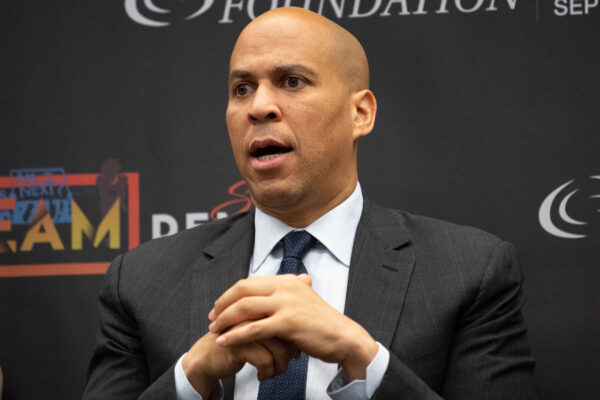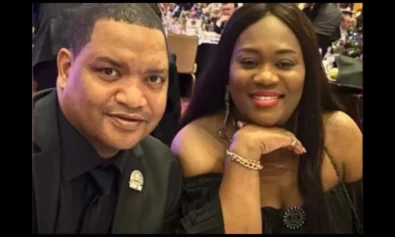Two politicians, descendants of enslaved African-Americans, are proposing that hundreds of thousands of Black people who fought for the nation during the Civil War be honored. The legislators state that these soldiers should receive “the recognition they deserve.”
Del. Eleanor Holmes Norton (D-D.C.) and Sen. Cory Booker (D-N.J.), both members of the Congressional Black Caucus, introduced a bill on Friday, Feb. 4, that proposes to posthumously award approximately 200,000 Black men the Congressional Gold Medal. These fighting men, though all not legal citizens, took up arms to protect the Union both in the Army and the Navy and fight for the liberation of millions of people of African descent living under the conditions of slavery in the South and Midwest.

“What took us so long?” Norton stated. “Since it’s taken us, what is it, 150 years after the Civil War, Black History Month is a good time for the House and the Senate to honor these soldiers and sailors, 200,000 of them, who served in the Civil War.”
The soldiers that fought in the bloodiest war in American history faced the chance of losing their own freedoms.
The Freedmen and Southern Society Project, an organization that has curated over 50,000 documents from the National Archives of the United States on the fight to dismantle slavery, printed the Confederate President Jefferson Davis’ 1862 Christmas Eve mandate to kidnap and enslave Black union soldiers.
He wrote, “All negro slaves captured in arms be at once delivered over to the executive authorities of the respective States to which they belong to be dealt with according to the laws of said States (of the Confederacy).”
Norton stated that the recognition is indeed constructed to honor “all” Blacks that served in the war to grant emancipation to enslaved Americans.
She lifted Harriet Tubman, who was considered “one of the best-known personalities” of the war, for her work as a nurse, cook, and spy for the Union Army, gathering intelligence that would be instrumental in important victories for the nation’s militia.
She joined the army in 1862 and was stationed in South Carolina as a nurse to help wounded soldiers. However, her unique skills learned as a conductor on the Underground Railroad, made her useful to General David Hunter who hired her to spy and scout missions behind Confederate lines.
In the summer of 1863, she worked with Colonel James Montgomery to liberate more than 700 slaves from plantations along the Combahee River. Tubman, despite her valiant service, struggled with the government she served to receive her pension — receiving it almost 20 years after the war was over.
Originally, President Abraham Lincoln was hesitant about enlisting Black soldiers.
According to Douglas Egerton, the author of “Thunder at the Gates: The Black Civil War Regiments that Redeemed America,” Lincoln was an “anti-slavery mainstream politician,” not an abolitionist. He understood that politically he would receive push back from Northern Democrat and moderate Republicans, who “were not enthusiastic about using Black troops.”
He was also worried that by adding them, some states with the Union would secede and join the Confederacy.
But the Union’s militia needed bodies. According to the government archives, white men stopped volunteering for the fight, and free Blacks from the North and escaped Blacks from the South were willing to serve.
But Frederick Douglass vigilantly lobbied for the consideration.
The archive states that by the conclusion of the Civil War, 10 percent of the Union Army were Black, totaling 179,000 African American soldiers in the branch’s ranks. The Navy boasted 19,000 soldiers serving on their ships.
Remarkably, reports say that of the approximately 40,000 Black soldiers that died in the Civil War, three-quarters of them died from infection or disease, not in active duty. They served in a variety of capacities in artillery and infantry.
Listed among the jobs Blacks served in are carpenters, chaplains, cooks, guards, laborers, nurses, scouts, spies, steamboat pilots, surgeons, and teamsters who also contributed to the war cause. Some soldiers did actually fight in the war.
The 1989 film, “Glory,” which earned Denzel Washington his first Academy Award, dramatized the 54th Regiment of Massachusetts Volunteers’ July 1863 assault on Fort Wagner, South Carolina, where they lost two-thirds of their officers and half of their troops fighting.
By the end of the war, 80 Blacks of the 200,000 soldiers were commissioned as officers and only 16 Blacks of that number were given the Medal of Honor.
More news from our partners:


